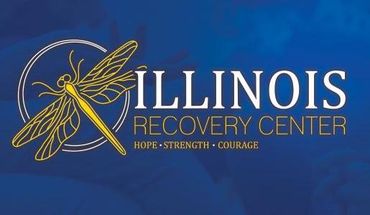
Drug & Alcohol Rehab Centers near Kansas City, MO
Addiction is challenging, but professional treatment is available in Kansas City. Whether you’re looking for detox, inpatient care, or outpatient support, there are programs to fit your needs. Use our search tool to find rehabs near you that fit your needs. Search by insurance provider, level of addiction treatment, and more.
Open to Travel? Check out Top-Rated Options
All Treatment Centers near Kansas City, MO
Are You Covered For Treatment?
- Saint Louis Rehabs
- Springfield Rehabs
- Saint Charles Rehabs
- Columbia Rehabs
- Cape Girardeau Rehabs
- Poplar Bluff Rehabs
- Saint Joseph Rehabs
- Joplin Rehabs
- Kennett Rehabs
Information About Rehab in Kansas City
Latest Reviews
Latest Reviews of Rehabs in Missouri
First Call Alcohol/Drug Prevention and Recovery
I had a substance abuse evaluation with a very nice lady named Rita Mwangang the assessment counselor and she gave me some fantastic advice some for life and a lot for my health
Imani House
My experience was one of profound insight into the matter of addiction, and how it is a disease s ell as a physical, social and mental disorder, that is crippling and debilitating It gave me my life back. The counselors pulled no punches, they helped me.
Crittenton Children's Center
I thought while I was in there that they had cared about me as a person. Caring Staff. Boring
Area Information
Kansas City, Missouri, nestled in the heart of the United States, is a vibrant and diverse city known for its rich cultural heritage, excellent barbecue, and passionate sports fans. With a population of over 500,000 residents,1 it offers a unique blend of Midwestern charm and urban amenities, making it an ideal location for residents and visitors alike.
Substance Misuse and Addiction in Kansas City, Missouri
Substance misuse and addiction are indeed significant challenges in Kansas City and the state of Missouri as a whole. According to data from the Missouri Department of Health and Senior Services, drug overdoses, including both fatal and nonfatal cases, have reached epidemic proportions in the state over the past decade. In 2020, Missouri ranked 32nd among all states and the District of Columbia for drug overdose death rates.2 It is alarming to note that drug overdoses have become the leading cause of death among adults aged 18-44 in Missouri,2 underscoring the urgent need for effective addiction treatment and prevention measures in the region
Drug and Alcohol Rehab
Rehabilitation programs offer a range of options and programs to address addiction and facilitate the path to recovery. These programs are designed to cater to various needs and preferences, allowing individuals to find the support that best suits their journey toward a drug-free life.
What Happens in Drug and Alcohol Rehab?
In the process of addiction recovery, individuals may undergo multiple stages of treatment, including detox, inpatient care, outpatient care, and aftercare. These levels of care are tailored to meet individuals at different points in their recovery journey, recognizing that everyone’s path to sobriety is unique.
Detox Programs
Detox programs play a critical role in the early stages of addiction treatment. They are typically conducted in a medically monitored environment to ensure the safety and well-being of individuals as they undergo the challenging process of withdrawal from various substances. During detox, healthcare professionals may administer medications to help manage the discomfort and symptoms associated with withdrawal, which can vary depending on the substance of abuse. This medical support is crucial in making the transition to sobriety as comfortable as possible and ensuring that individuals are prepared for the subsequent stages of treatment. Detox programs are the first step in the journey to recovery and provide a foundation for the broader spectrum of care that follows.
How Long Is Detox in Rehab?
The duration of detox varies depending on several factors, including the type and severity of the substance use, the individual’s overall health, and their unique needs. In most cases, detox programs last anywhere from 3 to 7 days. However, this time frame can be longer for individuals with a more prolonged history of substance use or those dealing with particularly challenging withdrawal symptoms. The primary goal of detox is to help individuals safely rid their bodies of harmful substances, laying the groundwork for the next stages of addiction treatment.
Inpatient Drug and Alcohol Rehab
Inpatient treatment programs, sometimes referred to as residential programs, offer a structured and immersive approach to addiction recovery. These programs are designed for individuals who require intensive, round-the-clock care and support to overcome their substance use disorder. Inpatient drug and alcohol rehab typically lasts for 30, 60, or 90 days, with the duration depending on the individual’s needs and progress.
Inpatient programs utilize a variety of therapeutic approaches, including individual counseling, group therapy, and holistic modalities, to address the underlying causes of addiction and teach essential coping skills. This comprehensive approach is essential in keeping patients on track with their healing journey. Moreover, inpatient programs are well-equipped to address co-occurring mental health disorders, as they often contribute to addiction. These programs offer a supportive and drug-free environment where individuals can focus on their recovery without the distractions and triggers present in their daily lives.
Outpatient Drug and Alcohol Rehab
Outpatient treatment is a flexible option for individuals who do not require round-the-clock supervision and can continue to meet their daily responsibilities while pursuing recovery. Outpatient drug and alcohol rehab programs provide a range of services, including individual therapy, group counseling, and educational sessions. These programs aim to equip individuals with the tools necessary to maintain sobriety in their daily lives and manage potential relapse triggers.
In addition to therapy, outpatient programs emphasize aftercare planning and relapse prevention strategies. They can be particularly beneficial for those transitioning from inpatient care or for individuals with strong support systems in place. The flexibility of outpatient treatment allows individuals to receive the necessary support while still fulfilling their personal and professional commitments.
How Much Does Rehab Cost?
The cost of rehab can seem daunting, but it should never be a barrier to getting help. Various payment options, such as:
- Payment Plans
- Government Grants and Scholarships
- Free Rehab
- State-Funded Rehab
Does Insurance Cover Drug and Alcohol Rehab?
Many insurance plans cover at least a portion of rehab costs, making it more affordable for those seeking recovery. Widely accepted rug rehab insurance providers include:
Finding The Best Rehab Center
Kansas City, Missouri Drug and Alcohol Rehab Facilities
While our rehab locator tool can help you find nearby facilities in Missouri, it’s often recommended to consider out-of-state treatment to reduce distractions and enhance focus on recovery. This tool ensures you find the best treatment facility, whether in Missouri or elsewhere, to meet your specific needs.
Sources
- United States Census Bureau. Kansas City, Missouri. July 1, 2022.
- Missouri Department of Health and Senior Services. Drug Overdose Dashboard – Fatal Overdoses.













